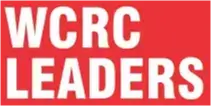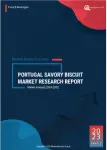Market Research Future (MRFR) has published on the “Global Multiomics Market”.
The Multiomics market is estimated to register a CAGR of 15.60% during the forecast period of 2024 to 2032.
MRFR recognizes the following companies as the key players in the global Multiomics market— Thermo Fisher Scientific Inc., Illumina, Inc, BD, Danaher, Bruker, QIAGEN, PerkinElmer Inc., Shimadzu Corporation, Agilent Technologies, Inc., and BGI.
Market Highlights
The global Multiomics market is accounted to register a CAGR of 15.60% during the forecast period and is estimated to reach USD 7.7 billion by 2032.
The multiomics market has grown due to ongoing developments in genomics, transcriptomics, proteomics, metabolomics, and other omics technologies. These developments make it possible for scientists to examine biological systems thoroughly. Additionally, multiomics technologies are expensive to implement initially and maintain over time, especially for small research labs and institutions with limited funding. This is especially true of equipment, reagents, and analysis tools. Furthermore, pharmacological discovery and development processes are sped up by multiomics technologies, which offer insights into pharmacological mechanisms of action, target identification, and drug response variability. The effectiveness and success rates of drug candidate selection and optimization are increased through the integrated analysis of multiomics data. Moreover, integrating data from several omics layers, such as proteomics, metabolomics, transcriptomics, and genomes, presents notable challenges because of variations in data formats, platforms, and analysis methods. Integrating and harmonizing various datasets while preserving data consistency and quality is difficult.
Access Full Report @ https://www.marketresearchfuture.com/reports/multiomics-market-21860
Segment Analysis
The global Multiomics market has been segmented based on product and service, type, platform, application, and end user.
Based on product & service, the market is segmented into products, [instruments, consumables, software], and services. The products segment was attributed to holding the largest market share in 2023. Instruments, consumables, and software are the other product categories. This is due to next-generation sequencing (NGS) systems and other high-throughput sequencing platforms necessary to produce transcriptomic, epigenomic, and genomic data. Because sequencing systems can provide large-scale omics datasets quickly and affordably, there is an increasing demand for them.
The global multiomics market has been segmented into bulk multiomics and single-cell multiomics based on type. The bulk multiomics segment was expected to have the largest market share in 2023. Oncology and cancer research rely heavily on bulk multiomics techniques for precise diagnosis and treatment. Tumor sample profiling using transcriptome, proteome, and genome analysis makes it possible to identify therapeutic vulnerabilities, driver mutations, and gene expression signatures. This information helps physicians make individualized cancer therapy decisions and enhances patient outcomes.
Based on platform, the global multiomics market has been segmented into genomics, metabolomics, proteomics, transcriptomics, and integrated omics platforms. In 2023, the genomics segment was anticipated to have the highest market share. Whole genome sequencing technologies are in great demand for producing full genomic data from DNA sources. The detection of genetic variants, such as insertions, deletions, single nucleotide polymorphisms (SNPs), and structural variations, is made possible by WGS and offers insights into population genetics, genomic diversity, and disease risk.
Based on application, the global multiomics market has been segmented into cell biology, oncology, immunology, and neurology. The category for cell biology was predicted to hold the largest market share in 2023. Multiomics investigations of progenitor and stem cells provide insight into the processes involved in tissue regeneration, differentiation, and cellular reprogramming. Applications for regenerative medicine are advanced by the molecular signatures linked to pluripotency, lineage commitment, and tissue-specific activities revealed by integrated omics profiling of stem cell populations.
The global Multiomics market has been segmented based on end-users into academic and research institutes, pharmaceutical and biotechnology companies, and others. The category for academic and research institutes was predicted to have the largest market share in 2023. Academic and research institutes facilitate the advancement of cutting-edge technologies and research methodologies for multi-omics research. For multi-omics investigations, researchers are constantly innovating new sequencing methods, bioinformatics algorithms, analytical instruments, and experimental protocols to boost sensitivity, raise throughput, and improve data quality.
Regional Analysis
The global Multiomics market, based on region, has been divided into North America, Europe, Asia-Pacific, and the Rest of the World. North America consists of the US and Canada. The European Multiomics market comprises Germany, France, the UK, Italy, Spain, and the Rest of Europe. The Multiomics market in Asia-Pacific has been segmented into China, India, Japan, Australia, South Korea, and the Rest of Asia-Pacific. The Rest of the World's Multiomics market comprises the Middle East, Africa, and Latin America.
The North American regional sector maintained the largest market share for Multiomics. Many prominent biotechnology and life science businesses conducting multiomics research are based in the area. Numerous prominent academic institutions and research centers in the United States and Canada are working on cutting-edge projects utilizing the multiomics method. As a result, the industry has a strong ecosystem supporting technological innovation and development. North America has early access to the newest multi-omics platforms and methods due to the existence of significant market players.
Moreover, the European market has been persistently growing over the forecast period. The growing use of cutting-edge technologies in genomics, proteomics, and metabolomics propels Europe's multiomics market's strong expansion. The need for integrated multiomics solutions has increased due to the region's emphasis on precision healthcare and personalized medicine. Major companies are making R&D investments to provide cutting-edge platforms for thorough biological data processing.
Additionally, Asia-Pacific is anticipated to experience the quickest growth over the forecast period. The region's rise can be ascribed to multiple factors, such as the increasing incidence of chronic illnesses, extensive use of products for analysis and visualization, technological advancements, and increased investments in research and development (R&D). Additionally, several businesses are launching multi-omics-based research projects. For example, Burning Rock Biotech Limited launched the PRESCIENT trial in May 2021, the first blood-based pan-cancer early-detection study in China, utilizing a multiomics approach.
Furthermore, the Rest of the world's Multiomics market is divided into the Middle East, Africa, and Latin America. This growth is attributed to the region's growing healthcare infrastructure, rising burden of non-communicable diseases (NCDs), and increasing research and development (R&D) investments, all of which contribute to market expansion.
Key Findings of the Study
- The global Multiomics market is expected to reach USD 7.7 billion by 2032, at a CAGR of 15.60% during the forecast period.
- The Asia-Pacific region accounted for the fastest-growing global market due to the rising prevalence of chronic illnesses like cancer, diabetes, and cardiovascular problems. The desire for precision medicine solutions and tailored therapeutics is driven by the insights provided by multi-omics methods into the molecular pathways underlying these disorders.
- Based on type, the bulk multiomics segment was attributed to holding the largest market in 2023.
- Thermo Fisher Scientific Inc., Illumina, Inc, BD, Danaher, Bruker, QIAGEN, PerkinElmer Inc., Shimadzu Corporation, Agilent Technologies, Inc., and BGI are the key players in the market.
Leading companies partner with us for data-driven Insights
Kindly complete the form below to receive a free sample of this Report
| Base Year | 2021 |
| Companies Covered | 15 |
| Pages | 128 |
Certified Global Research Member


Why Choose Market Research Future?
- Vigorous research methodologies for specific market.
- Knowledge partners across the globe
- Large network of partner consultants.
- Ever-increasing/ Escalating data base with quarterly monitoring of various markets
- Trusted by fortune 500 companies/startups/ universities/organizations
- Large database of 5000+ markets reports.
- Effective and prompt pre- and post-sales support.
Tailored for You
- Dedicated Research on any specifics segment or region.
- Focused Research on specific players in the market.
- Custom Report based only on your requirements.
- Flexibility to add or subtract any chapter in the study.
- Historic data from 2014 and forecasts outlook till 2040.
- Flexibility of providing data/insights in formats (PDF, PPT, Excel).
- Provide cross segmentation in applicable scenario/markets.



















